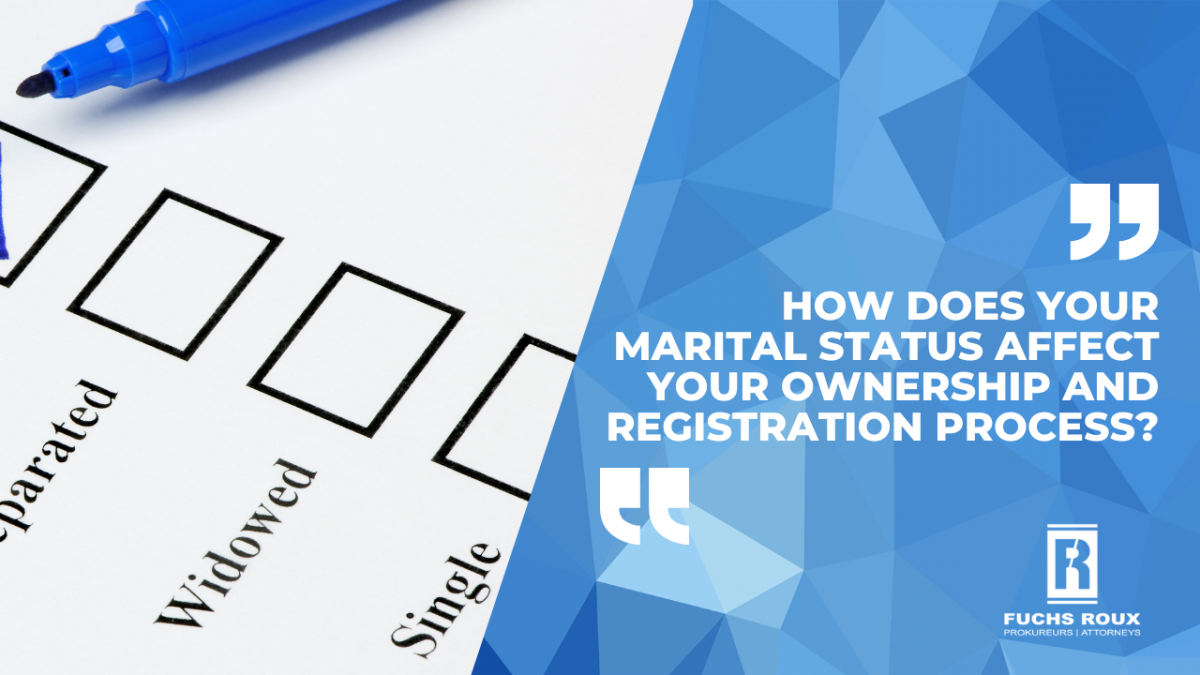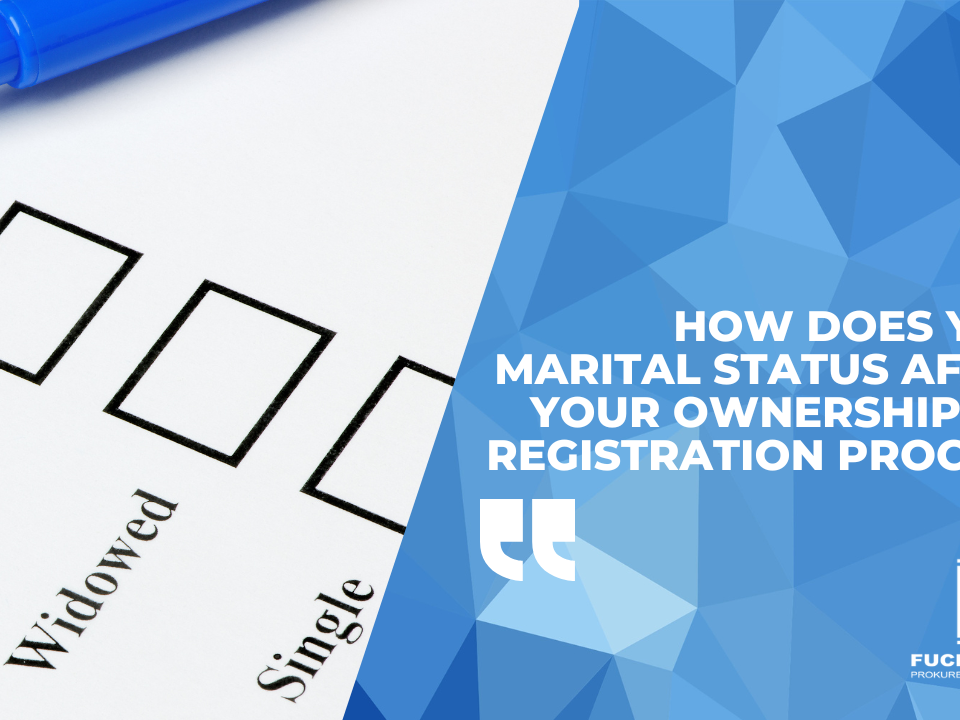
When adding a lapa is not so “lekker”
November 22, 2022What is Rouwkoop?
January 24, 2023Planning… Planning is such a common and integral part of our daily lives. We plan everything to the last detail when it comes to acquiring property, be it the layout of your home, the insurance you will need, the persons who will need to stay with you, etc. What we never seem to take into account or plan for is the effect of a change in our marital status when we buy or sell property.
Now you may ask yourself why it is so important to keep your marital status in mind when dealing with property. The short and easy answer is that it will affect the transfer process of your property. For a more detailed impact we will look at the following in more detail:
- How will it affect the signature and registration process for the duration of your property transfer?;
- Who can be held responsible by the bank for payment should your property be financed?;
- What should you do if the co-owner of the property dies or you get divorced?
You have now signed an offer to purchase for a property that you have completely fallen in love with while being unmarried, although you do have that special someone in your life. You are so happy about your new prospect you decide to get married by eloping with your loved one, without telling the estate agent, who has already instructed an attorney to attend to the transfer of the property. The bank has also approved your home loan, sent the instruction to the bond attorney, and you have signed all relevant documents with the attorneys. You have also gotten married in community of property as you were in a rush while eloping. So now you ask why does it matter? Well, let’s look at how your status affects your registration process.
- Whenever you buy or sell property your marital status will dictate the parties who are responsible for signature of documents. According to the Matrimonial Property Act 88 of 1984 any marriage which is a marriage in community of property will require your spouse to co-sign any and all transfer and bond documents during the process. Thus, given the scenario above you will have to inform both attorneys and your estate agent of the necessary, as the offer to purchase will have to be re-signed, you will have to add your spouse to the loan application, and all transfer and bond documents must be re-signed by both you and your spouse. The conveyancers involved on the matter may not register the property if they have been informed of a change in your marital status as they are obligated by law to ensure that parties are described correctly. They have a professional duty in this regard which is enforced and stipulated by Section 44 of The Deeds Registries Act 47 of 1937.
- The next point of importance is the liability of a property owner towards the bank for payment of the loan amount. The simple rule is that whoever has signed the loan agreement as co-owner on the property may be held responsible for the repayment of the loan amount toward the bank. Therefore, you again have to inform your attorney if your marital status changes before the bond is registered. The change in status may also have a negative impact on your affordability assessment with the bank as your spouse’s income and credit record will have to be assessed by the bank. It is also important to keep in mind that the bank has to be informed of any change in your status after registration of the bond as well. If you were unmarried and the bond was registered as such, but you got married in community of property afterwards, your spouse may still be sued for non-payment of the bond even though they did not sign the documents with you initially, as they automatically become owner of 50% of the property upon the marriage being concluded. This will also be the case where you are married out of community of property but co-own the property with your spouse or another individual has signed a surety agreement on your bond application.
- Lastly you have to be mindful of dealing with the property in the case of death or divorce. Should your spouse pass away or you get divorced, it is extremely important that you deal with the property according to your spouse’s will, or the decree of divorce. In the event that the property was financed with a bank you must notify them of the death of your spouse, or divorce. You cannot simply proceed with the divorce and expect everything to be finalised when the judge grants the order. As long as your name appears on the title deeds you will be held responsible for payments towards the bank. If you are awarded the property you will have to go back to the bank and apply for finance on your own so that the property may then be transferred to yourself as the sole owner
Handy tips to guide you in future:
- Always provide as much detail as possible to the agent and your attorneys as that will minimise delays on your registration process. Disclose to the attorneys if you intend to get married or divorced so they may take same into account and adjust the timeline for registration;
- Obtain legal advice from your local attorney before acting hastily without knowing what the legal implications will be;
- Talk to your significant other and always be aware of each other’s financial positions;
- Phone or e-mail the bank if your get married or divorced after the property was registered
At Fuchs Roux Inc, we have a multi-professional and multi-disciplinary team ready to assist you will all your above needs and questions.
Reach out to us today for more legal or property advice on info@frlaw.co.za
FUCHS ROUX INCORPORATED
MADALEEN NEL



